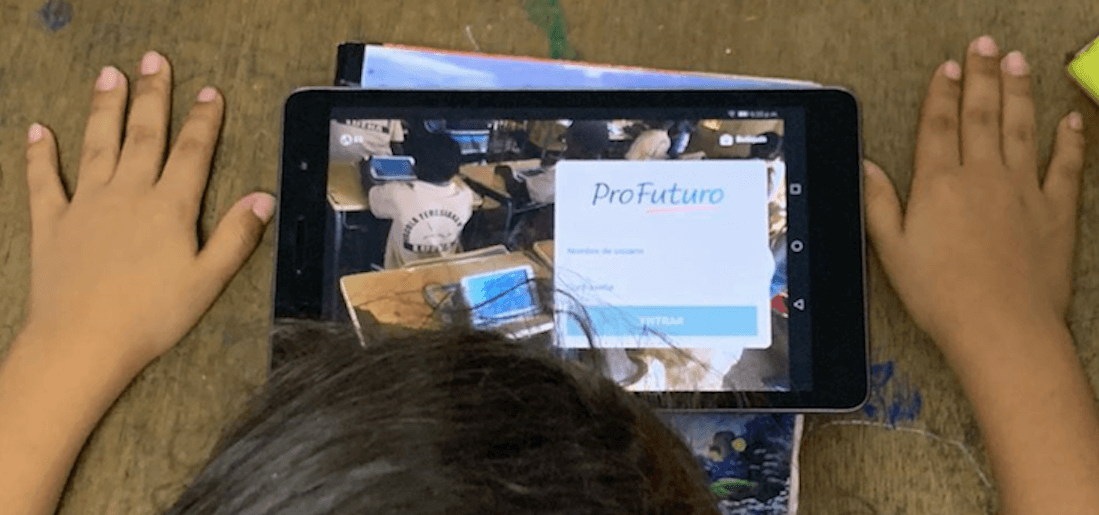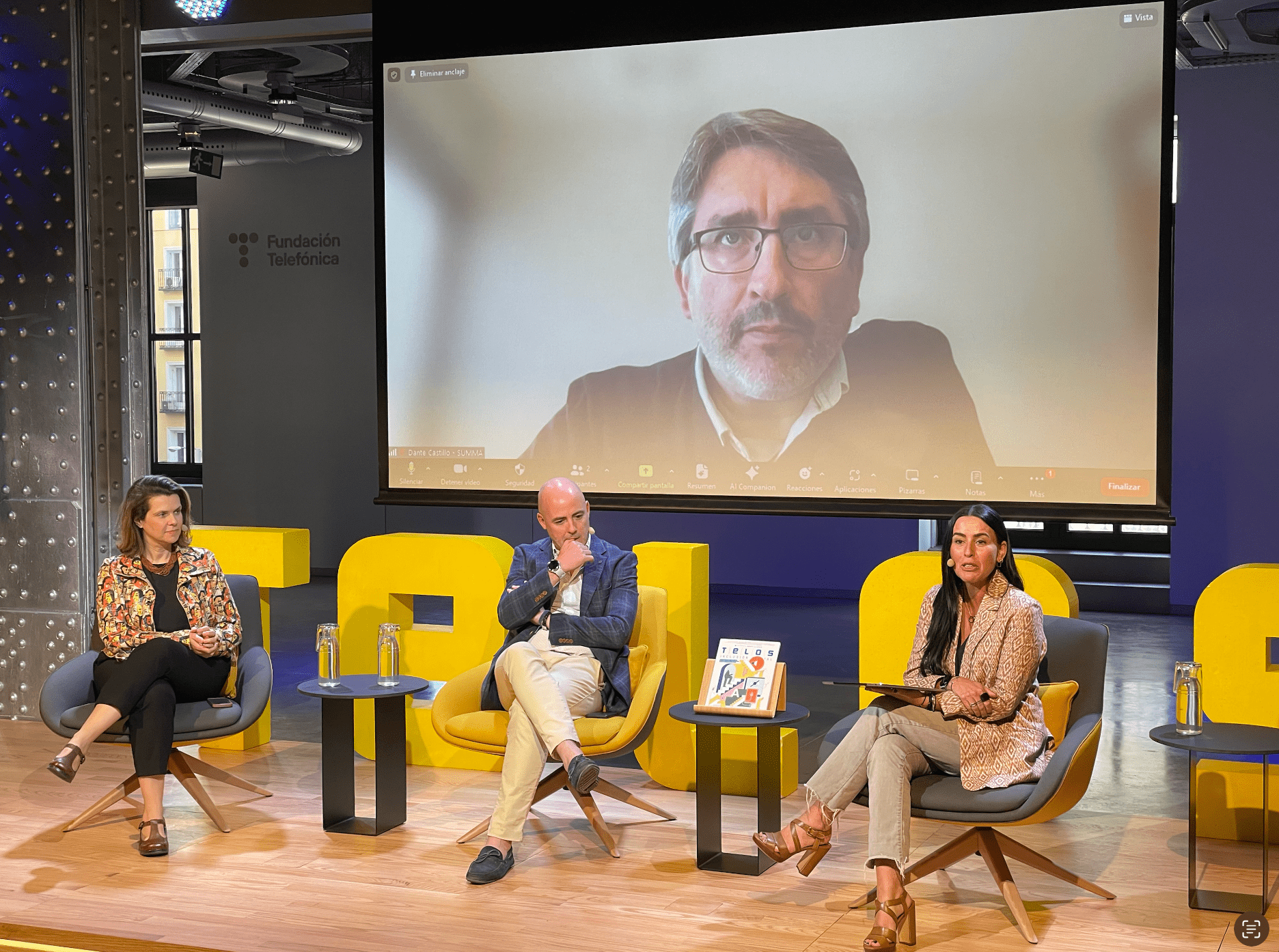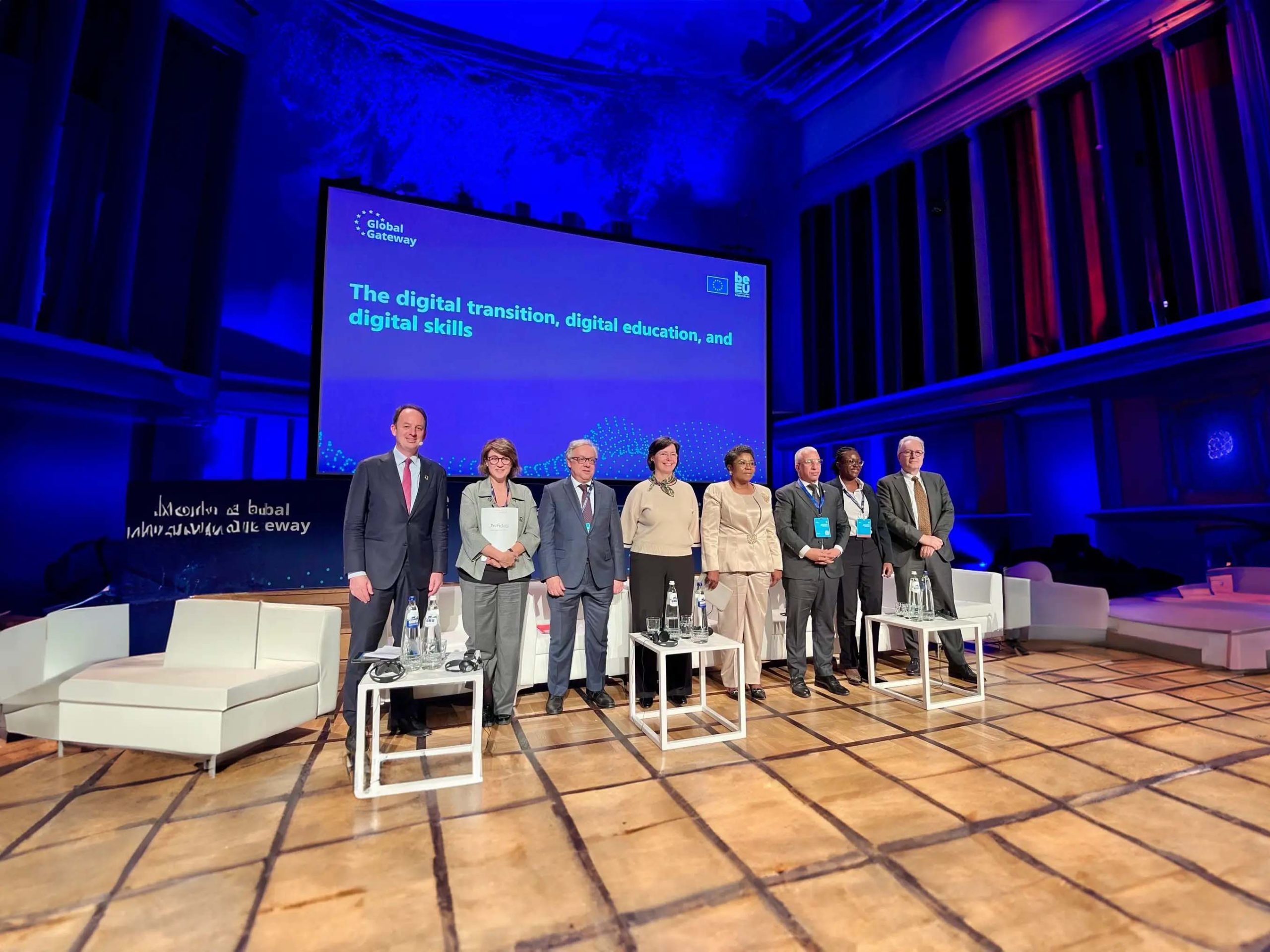The virtual hackathon, organised by ProFuturo and Universidad Pontificia de Salamanca (UPSA) through the Telefónica Chairs network, was inaugurated in the afternoon of 3 November in a virtual ceremony, and it will last until Friday the 6th. A total of 10 Spanish and Latin American universities have joined #hack4edu and are participating actively in both posing challenges and forming the teams, as well as developing the hackathon locally.
“In these times of such uncertainty for the education sector, inaugurating an initiative like this one, which places the creativity of universities at the service of educational innovation, fills me with satisfaction and hope”, stated Magdalena Brier, Managing Director of ProFuturo, when inaugurating the event. “We are seeing how schools are fighting to open up and remain open and how teachers are giving it their all so that their students can continue receiving an education and so that the virus does not clip the wings of their professional aspirations. During these three days, 150 hackers will join this huge effort and will search for solutions to the challenges faced by digital education today”, she said, while at the same time thanking the participants for their contribution and talent.
Digital education allowed many students to finish the school year from home, and in some places today, it is enabling the combination of on-site presence and remote education to ensure a safe environment at schools. However, the Managing Director of ProFuturo recalled how the sudden closure of schools and universities shows that “we are not entirely prepared for this jump to the virtual world. There are many challenges pending, especially in the most vulnerable environments”.
“Digital education must not be ‘a luxury’, rather a necessary and useful tool that contributes to improving educational quality for everyone. We cannot allow the digital gap to exacerbate the already existing education gap. Therefore, our hackers are already thinking about tools that allow accessing digital education content in areas with limited connectivity”, the head of ProFuturo pointed out, for whom “digitisation of the education sector must be inclusive”. Therefore, during the three days of the event solutions will also be sought for the obstacles that are faced by blind persons when using touch devices or for the effects that web pages and applications with many colours and movements could have on people with autism.
“The possibilities of technology are infinite; let’s let them serve education. In fact, that’s what we are doing today. Technology is precisely what allows us to hold this hackathon remotely, in which people in 6 different countries, separated by an ocean, can work as a team and can merge their talents through a digital platform. This initiative is itself an example of educational innovation, given that it allows university students to learn while designing solutions to real problems, a true exercise of learning and service”, she concluded.
Different challenges for different problems
During these three days, multidisciplinary groups of hackers from Spain, Argentina, Colombia, Nicaragua, Peru and Uruguay will work remotely on designing a prototype that resolves some of the 45 challenges that have been posed for #hack4edu since 29 July. Highlights include those related to access to digital educational content in areas with limited connectivity, controlling the influx of students at schools and overcoming the limitations of remote education in imminently practical subjects such as science. The challenges faced by people with autism or by the blind when using touch technology devices and certain web pages or applications with many colours and movement were also put on the table.
In turn, ProFuturo proposes that participants develop a tool that, using data analytics, is capable of recommending specific content to teachers according to the training courses that each one completes on our ProFuturo online platform.
The hackers will form teams around the challenges that they are interested in tackling. Two mentors and technical volunteers will be assigned to each team and will support and advise them over the three days. The hackathon, which will be 100% online, will take place through the digital work tool on Slack equipment.
Once the prototype development time has ended, the teams will present their projects locally on 6 November in a virtual ceremony. A jury integrated by specialists on technology and education will evaluate them based on several criteria, including the creativity of the proposal and the possibility of using the prototype in the real market. The three winning projects of each local headquarter will compete internationally. The global winners will be announced on 7 November in a virtual prize award ceremony.
The three best projects will be awarded with prizes of 2,000, 1,000 and 500 euros. Moreover, the network of Telefónica Chairs will offer three free enrolments in the expert masters programme in Big Data at the Universidad Pontificia de Salamanca, and ProFuturo will award a specific prize of 1,000 euros to the project that best responds to the challenge posed by the programme of the Telefónica Foundation and the “la Caixa” Foundation.
Projects with the greatest social impact will also be recognised. The Universidad Internacional de La Rioja (UNIR), through the Telefónica-UNIR Chair in Digital Society and Education, will grant three special scholarships to the best social projects for any master’s degree or expert programme of its School of Engineering and Technology (ESIT).






